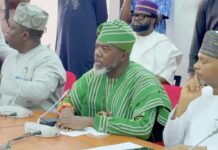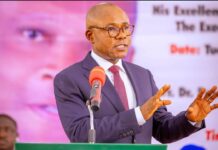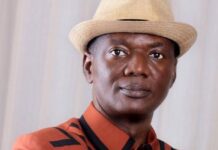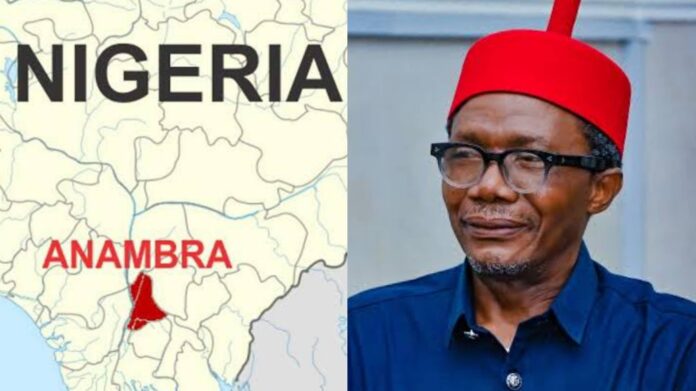It is important to step back and take a deep look beyond Soludo’s banters over fake certificates and F9 bazaar. It is also essential to state from the outset that the hood does not make the monk. However, it is also true that there is no monk without a hood. To rephrase, while a quality education does not guarantee effective governance, it is evident that no instance of sound governance throughout modern history has occurred devoid of some degree of educational foundation. This serves as the foundation for highlighting the references to severely inadequate education and counterfeit credentials being flaunted by certain candidates in the Anambra guber election slated for November 8.
Those who assert that Governor Soludo ought not to have devoted his attention to the seemingly minor matter of the poor education of his main challenger fail to recognise the profound connection between leadership, governance, and education. Research has established a direct correlation between education and effective governance.
The extrapolation of such research evidence to electing an LG chairman, governor or president implies that innumerate and illiterate prospective candidates cannot effectively govern or control Anambra State.
Alhaji Barkin Zuwo’s election as Kano State’s Governor in 1983, possibly marked the last time Nigeria had an illiterate governor. Though the Zuwo incident was about 40 years ago, even then, it still garnered so much bad press that Kano State was made the national laughing stock for comments like: “The country has many mineral resources such as Fanta, Coca-Cola, and Mirinda,” which were purportedly said by the illiterate governor for not knowing any better.
It is just inconceivable that someone who is only partially literate would be chosen to lead Anambra State, the Light of the Nation, the home state of Dr Nnamdi Azikiwe, Emeka Ojukwu, Chinua Achebe, Emeka Anyaoku, and Chimamanda, to name a few. Nigeria has come a long way since the Zuwo era. In the twenty-first century, it is absurd to elect an uneducated hustler to power as governor of Anambra State, which has one of the highest statuses in Nigeria for education, regardless of how successful the person may be in any endeavour.
For this reason, it is debilitating to read a hireling article claiming that some company captains and industry titans of Anambra extraction have achieved the highest levels of success in the corporate world without having a load of degrees. Tragically, however, the logic of this warped argument ignores the fact that none of these persons had ever dabbled in government like the one whom Governor Chukwuma Charles Soludo, CFR, made fun of during the inauguration of the APGA campaign council in Awka. These incredibly well-known businessmen without degrees have never printed posters claiming to run in any kind of election. Instead of entering the muddy world of partisan politics, they would much rather be regarded as kingmakers, a role most of them have played remarkably well.
Fake credentials and the candidates’ incredibly subpar WAEC results were the main concerns in Governor Soludo’s speeches for this reason. Not only is the public embarrassed by these important deficiencies, but the owners should be too. How can a prospective governor be exposed for using a phoney certificate to demonstrate their intellectual heights attained? A guy who failed every course he took should, at best, return to school rather than trying to lead the populace despite his glaring ignorance. We know a late senator who, before becoming a public officer, took a degree in law from a reputable private university to prepare well for public office as a senator or governor.
Because each person has a unique gift, division of labour is a natural order. “Ekelu olu eke!” as our people declare it.
Although a governor does not have to be an expert in every field, it is imperative that he possess the knowledge necessary to recognise good policies, comprehend the nuances of reports, understand the national and international economics and politics, and, of course, understand how the state he hopes to govern holds its own nationally and internationally. Otherwise, he or she may be forced to outsource governance and remain a figurehead.
A semi-illiterate is most surely not up to this work. The demands of public office are very different from those of private enterprise. In business, a person can achieve any level of success, but in enlightened politics, things are so difficult and complex that street wisdom is not enough. Making money, which comes by fair or foul means, is therefore not a prerequisite for public office for an uneducated businessman.
The fact is: formal education equips the individual with a worldview that links him or her to resources and helps him or her become capable.
A fake result is a result that does not exist in the true sense of the word and is yet another and perhaps a much more serious issue; either the individual never attended the institution or the institution itself does not exist. Everything depends on leadership, and leadership is based on integrity. Giving a state or country to such a person is risky and has not produced positive results anywhere in the world.
A brilliant intellectual leader and philosopher king himself, Governor Soludo, admires the accomplishments of the first Singaporean Prime Minister, Lee Kuan Yew, who transformed his nation from a Third World basket case to a First World one. The book From Third World to First – The Singapore Story: 1965-2000, authored by the nation’s first leader, Lee Kuan Yew, a 1949 First Class graduate of Cambridge University, in England, vividly illustrates the success of Singapore’s celebration of genius and proof of the correlation between governance and education.
As a result of Lee Kuan Yew’s legacy, Lee Hsieng Loong, the nation’s third prime minister and the man who took office on August 12, 2004, was also a 1974 First Class graduate of Cambridge University!
The following were first-class cabinets in the Singaporean government led by Lee Hsieng Loong: Teo Chee Hean, Minister of Defence (University of Manchester First Class); George Yeo, Minister of Foreign Affairs (Cambridge Double First Class in 1976); and Lim Hng Kiang, Minister of Trade and Industry (Cambridge First Class with Distinction in 1976).
It is not surprising that Singapore serves as a model for all other nations in severe need of development on all of the world’s cardinal points. The motto of the Singaporean government, “Integrity, Service, Excellence”, is well-deserved.
In light of this, everyone in Anambra State, and Nigerians in general, should pay close attention when Soludo discusses candidates who have F9 results and phoney certificates. They are disasters waiting to happen.
Watch out for the article “Soludo, Lee Kuan Yew and the Emir of Dubai: Three of a Kind” for a fuller analysis of the relationship between education and governance.
* Law Mefor, PhD, is Anambra State Commissioner for Information.





